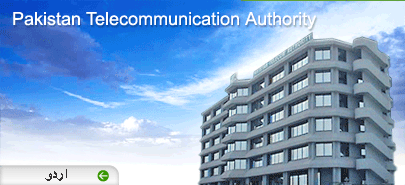Pakistan Telecom Authority prepares to auction 3 G licenses for cellular operators, a close look at the Information Memorandum released by the regulatory authority reveals that in its current form, the proposed process may lead to some non competitive practices leading to creation of monopolies in the cellular market.
To begin with the process so far decided by the PTA suggests that two different companies with different directors can bid for 3 slots of 2.1 GHz made available by PTA. The IM does not make any reference to share holding structures of such two companies, clearly opening a back channel for the companies having same shareholders but different individuals sitting on the board of directors.
In Pakistan’s context potentially Telenor can take two slots and Mobilink can get one slot. This would effectively mean that Vimpelcom (A Russian operator which has controlling shares of Orascom and is partly owned by Telenor) will have a monopoly on 3G in Pakistan. Thus this back channel left open will allow a global player to have control over the telecom market in Pakistan and would be pushing other players out of the market.
Already instead of five (the number of existing players) only three licenses are being offered. This would effectively mean that the two operators who would fail to bid enough for the 3G spectrum would start losing their revenue generating clients to those who would be offering services based on a superior technology. Leaving the two with low end customers, driving their Average Revenue Per User (APRU) lower, resulting in losses.
The average customer of these cellular companies would also be suffering by either having to switch operators or to contend with lower technology services.
Telecom analysts believe that at least five licenses should have been offered, even if that meant raising the reserve price of the license from its current levels. With bidding for three licenses, government may be able to claim some success in earning revenues but in the longer run it will be damaging the investment in the sector.
Increasingly it is also being felt that while the licenses on offer may be technology neutral but it is also proving to be technology blind! PTA seems to have disregarded the fact that these licenses have to evolve over time for Long Term Evolution or (4G). LTE performs best with 20 MHz frequency slot but right now the frequency is being offered at 10 MHz, leaving it insufficient for the time when LTE will be needed to be deployed.
Telecom analysts believe that it would have been much better to make available 10 MHz today for all the five operators and keep a capacity of increasing them to 20 MHz for LTE time. To cater for the future needs and also to earn revenues it could ask for a price which it expects from the bidding. The current process thus is failing to address the future needs.
“It seems bureaucratic and technical aspects have been created to make the political government believe that it will earn huge revenues for the government with 3G license auction, but it would be a process that would be unfair for some operators and also may fetch less revenues then would have been possible with five licenses and a clear road map for LTE.”

